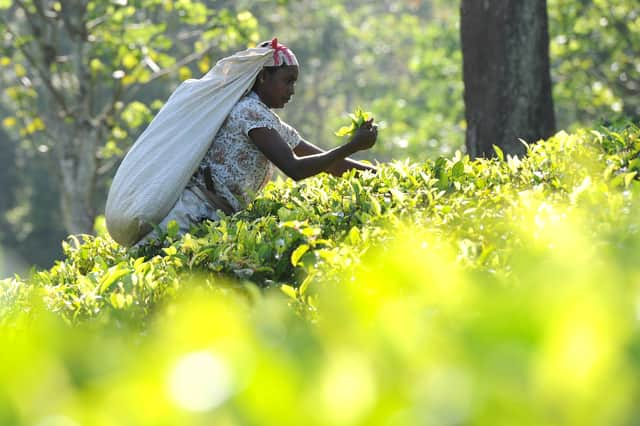Farming policy: More haste, less speed could be a sound principle


The Scottish Government has been widely criticised for its ploddingly slow development of future farm strategy, seemingly preferring to set up review groups and launching consultations rather than taking decisions.
And, announcing one of each over harvest time, it’ll certainly be interesting to see if the latest – the implementation board and the consultation ‘Agricultural Transition in Scotland – The First Steps Towards our National Policy’ will mark the start of some real progress.
Advertisement
Hide AdAdvertisement
Hide AdThe global climate conference, COP 26, is likely to act as a spur to the administration – and the initial timescale makes it look likely that at least some of the pilot projects should be agreed before the event in November, hopefully giving it the kudos of having some plans on the ground backed by industry buy-in.
But the new consultation, largely based on the recent Farmer-led Group reports, is set to lead on to a full consultation in 2022 on proposals for future policy that would be enacted by a Bill for agricultural and land use policy in 2023 – so no great signs of haste there. .
However, one thing which the slow pace of the decision-making process might do is to allow us to avoid the mistakes being made elsewhere.
Looking south of the border, while the nuts and bolts have yet to be settled on some of the ‘public money for public goods’ options, the wholescale move away from any focus on the actual production of food looks set to trigger major changes across the entire agricultural and rural sectors.
Perhaps as a measure of how attractive the proposals are to farmers there, a recent report from one of the big land agents companies has indicated that the proposed retirement scheme for farmers in England which allows them to take their likely future support payments for the next few years up front in a lump sum, while being far from perfect, is likely to be taken up to such a degree that it will trigger a significant change in land stewardship over the course of the next few years, especially amongst tenants as people quit the industry.
Slightly further afield, the EU recently took a major step closer to approving the latest round of farm reforms when MEPs sitting on the influential AGRI and ENVI Committees backed the proposals for the ‘Farm to Fork’ strategy, which includes reducing livestock numbers and moving to more organic production.
But, while farming groups in the EU welcomed some of the proposals on innovation, carbon farming, trade and the strengthening of agri-cooperatives they were less than happy that rather than reducing some of the environmental hurdles which producers in the trading block would have to deal with the MEPs recommended additional measures over and above those originally put forward.
Claiming that these had ‘crossed the red line’, Europe’s farmers declared that the direction in which policy was travelling called into question the region’s food sovereignty – along with the entire future of agriculture and rural areas within the trading block, by making the transition to more sustainable production methods ‘untenable’ for farmers.
Advertisement
Hide AdAdvertisement
Hide AdThey also claimed that the first impact analyses published on the Commission's flagship strategy for agriculture highlighted a real likelihood of significant drops in production and significant additional costs for producers.
“Even if a reduction in EU agricultural emissions could result from this strategy, a large part of it would come from the relocation of our production to third countries,” they claimed.
However one of the most revolutionary experiments in agricultural policy must be Sri Lanka’s move to 100 per cent organic production in May of this year – after its government banned the importation of all chemical fertilisers and agro-chemicals at a stroke.
But while the move was taken with the aim of improving the country’s balance of payments, recent reports have highlighted that this has led not only to a huge level of inflation in food prices but also to a major crash in the production of its main agricultural export – tea. And taken together scientists and economists have been warning that these two factors are threatening to destabilise the country’s entire economy.
Maybe, making haste slowly isn’t so bad…